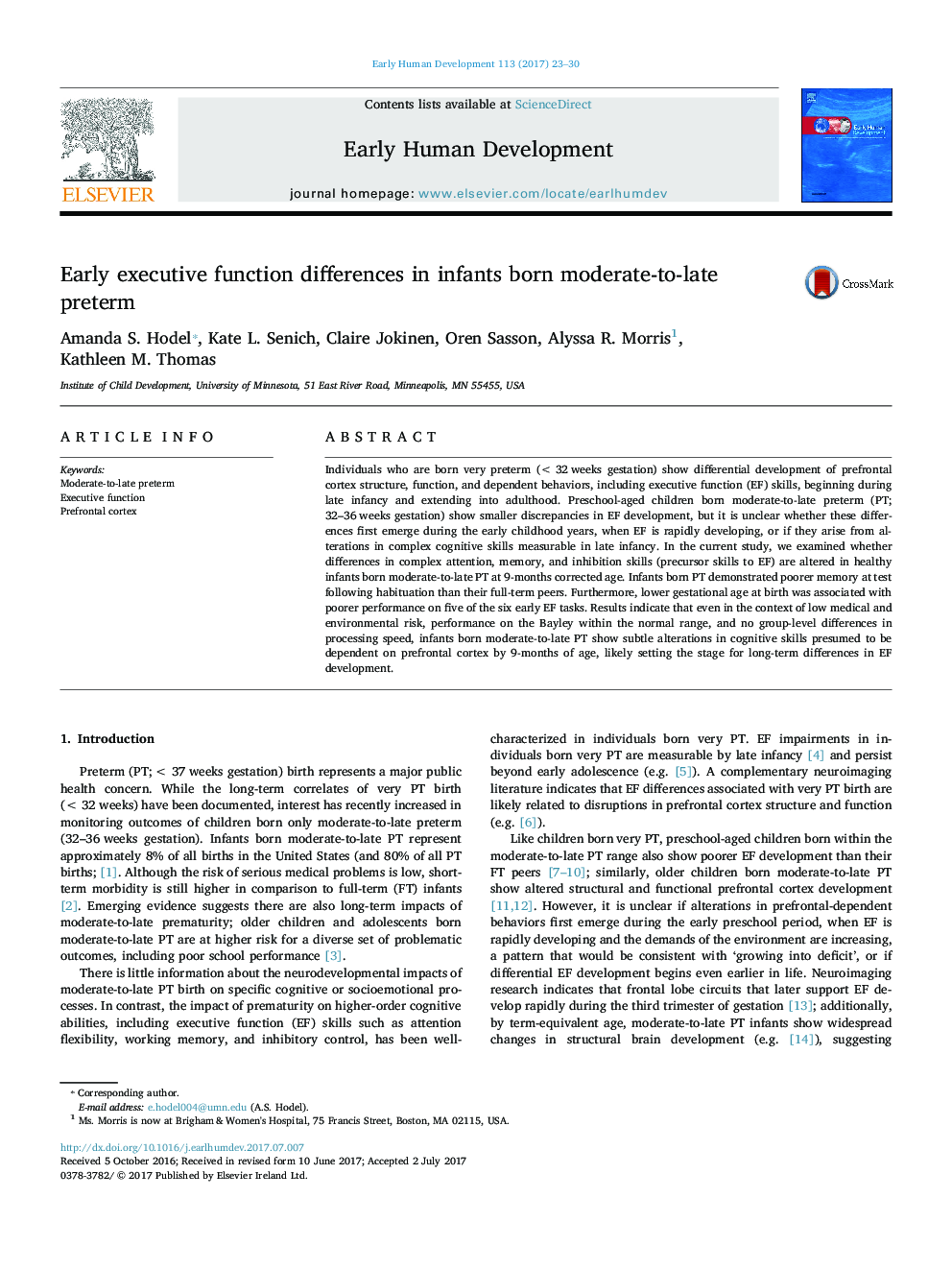| Article ID | Journal | Published Year | Pages | File Type |
|---|---|---|---|---|
| 5689040 | Early Human Development | 2017 | 8 Pages |
Abstract
Individuals who are born very preterm (<Â 32Â weeks gestation) show differential development of prefrontal cortex structure, function, and dependent behaviors, including executive function (EF) skills, beginning during late infancy and extending into adulthood. Preschool-aged children born moderate-to-late preterm (PT; 32-36Â weeks gestation) show smaller discrepancies in EF development, but it is unclear whether these differences first emerge during the early childhood years, when EF is rapidly developing, or if they arise from alterations in complex cognitive skills measurable in late infancy. In the current study, we examined whether differences in complex attention, memory, and inhibition skills (precursor skills to EF) are altered in healthy infants born moderate-to-late PT at 9-months corrected age. Infants born PT demonstrated poorer memory at test following habituation than their full-term peers. Furthermore, lower gestational age at birth was associated with poorer performance on five of the six early EF tasks. Results indicate that even in the context of low medical and environmental risk, performance on the Bayley within the normal range, and no group-level differences in processing speed, infants born moderate-to-late PT show subtle alterations in cognitive skills presumed to be dependent on prefrontal cortex by 9-months of age, likely setting the stage for long-term differences in EF development.
Keywords
Related Topics
Health Sciences
Medicine and Dentistry
Obstetrics, Gynecology and Women's Health
Authors
Amanda S. Hodel, Kate L. Senich, Claire Jokinen, Oren Sasson, Alyssa R. Morris, Kathleen M. Thomas,
